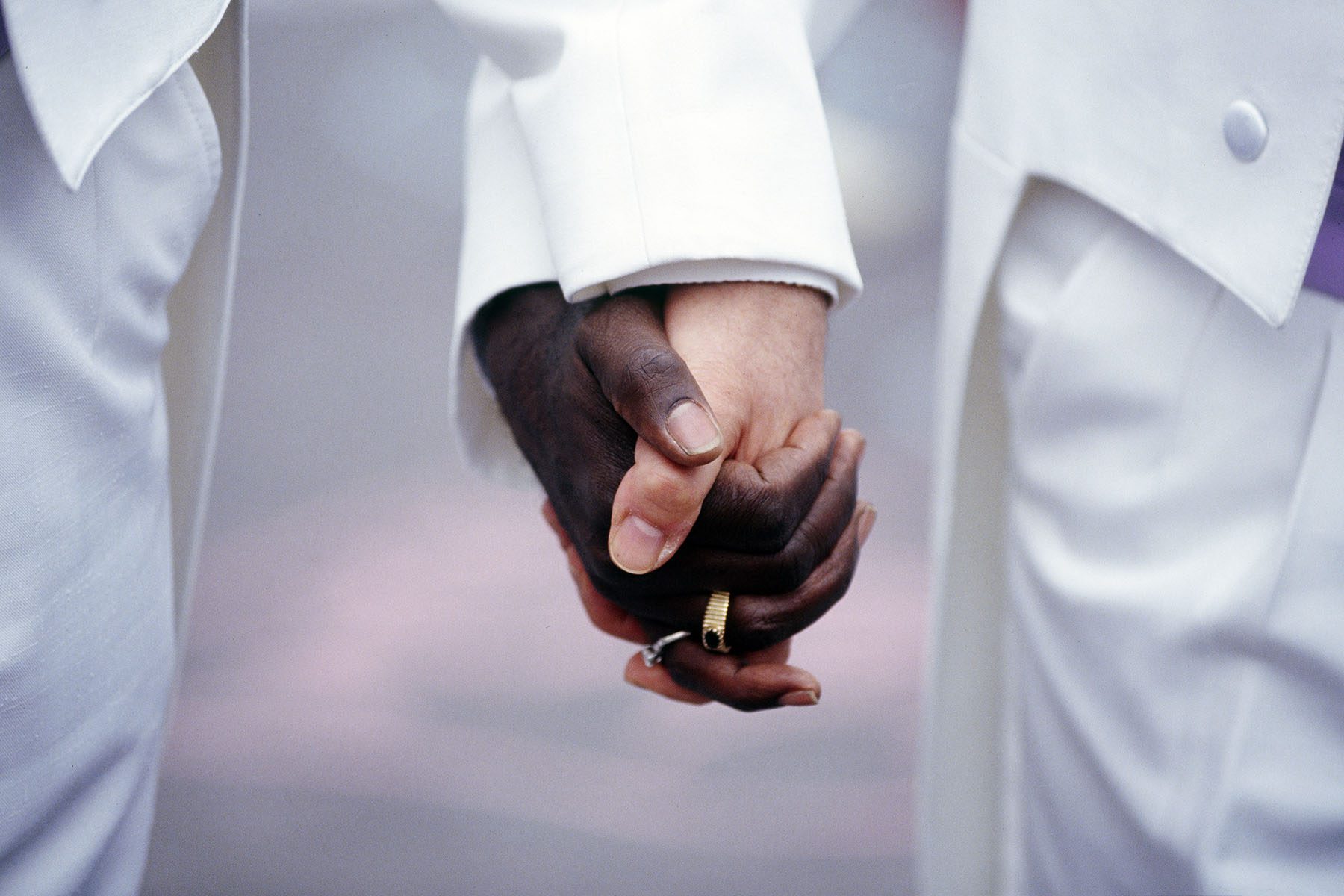The Senate advanced a stop-gap measure to protect marriage equality in the event the Supreme Court decides to reverse itself on Wednesday. The bill will head to a final vote Friday.
The Respect for Marriage Act, a bill that overturns the 1996 Defense of Marriage Act and forces states without marriage equality laws to honor marriages from other states, is on track to become law. The House passed a version the bill in July. The amended Senate version is expected to pass through the House again on Friday before heading to President Joe Biden, who has vowed to sign it.
The bill has bipartisan backing from lawmakers. Democratic Sens. Tammy Baldwin of Wisconsin and Kyrsten Sinema of Arizona joined Republicans , Susan Collins of Maine, Rob Portman of Ohio and Thom Tillis of North Carolina in sponsoring the measure, promising that it would leave religious freedom intact.
“The Respect for Marriage Act is a needed step to provide millions of loving couples in same-sex and interracial marriages the certainty that they will continue to enjoy the freedoms, rights, and responsibilities afforded to all other marriages,” the senators said in a statement.
Advocates have been anxious to see the bill’s passage since the Supreme Court struck down federal abortion rights in June, exposing a slew of civil rights precedents, including the landmark 2015 Obergefell v. Hodges decision on marriage equality. The Respect for Marriage Act was drafted as a stop-gap measure in the event that the court struck down the Obergefell decision. It is also intended to protect interracial marriages from state-to-state should the court reverse its 1967 Loving v. Virginia decision, a move experts say is less likely but still possible given the court’s Dobbs ruling.
Once signed, the Respect for Marriage Act will become the most substantial pro-LGBTQ+ rights law enacted by Congress. Still, the bill does not guarantee marriage equality nationwide. Instead, it makes same-sex marriages portable from state to state, forcing states without equal marriage laws to honor out-of-state unions. The federal government will also be required to recognize marriages regardless of gender. But states that did not pass their own queer marriage laws could still ban marriage equality if the Supreme Court were to overturn its Obergefell decision. Supreme Court Justices Clarence Thomas and Samuel Alito have signaled that they are open to the idea of overturning Obergefell.
In that event, 32 states would likely need to repeal their marriage bans at the ballot box, in their legislatures, or both to keep marriage equality intact. LGBTQ+ marriage is overwhelmingly popular in the United States. According to a poll by Gallup in June, 21 percent of Americans support marriage equality, a statistic that exposes the growing chasm between the Supreme Court and the general electorate.
Congress has historically failed to pass almost every piece of queer rights legislation brought before it, including the Equality Act, nationwide anti-discrimination protections in housing, public accommodations and education.
The legislature has not passed a queer rights bill since the 2009 Matthew Shepard and James Byrd Jr. Hate Crimes Prevention Act, which increased punishment for crimes motivated by sexual orientation and gender identity. While significant at the time, LGBTQ+ advocates have since expressed mixed feelings on hate crime laws, as studies suggest they are disproportionately used to incarcerate people of color and may do little to prevent violence.
Jennifer Pizer, chief legal officer of the LGBTQ+ rights organization Lambda Legal, said the court’s June Dobbs decision overturning abortion rights profoundly shifted the landscape, not just for LGBTQ+ marriages but the Supreme Court decisions that guaranteed interracial marriage rights, decriminalized queer relationships and made contraception legal.
“There are multiple alarming legal developments coming from this current radical Supreme Court supermajority, and whether they continue down this path or not remains to be seen,” Pizer said. “These decisions look like exercises of raw judicial power, with explanations that to a certain extent almost seem to mock us in the selective history and incoherence.”
“The idea that any of us would have to leave our home state to marry elsewhere in order to have legal status under our own state’s family code is not OK,” Pizer said.
Still, some say the likelihood that the Supreme Court would overturn marriage equality is slim.
Regardless, couples already married can rest assured that they will continue to be able to visit each other in the hospital and file joint tax returns, experts say.
Correction: An earlier version of this article reported that the bill had passed. It is now headed to a final vote.







